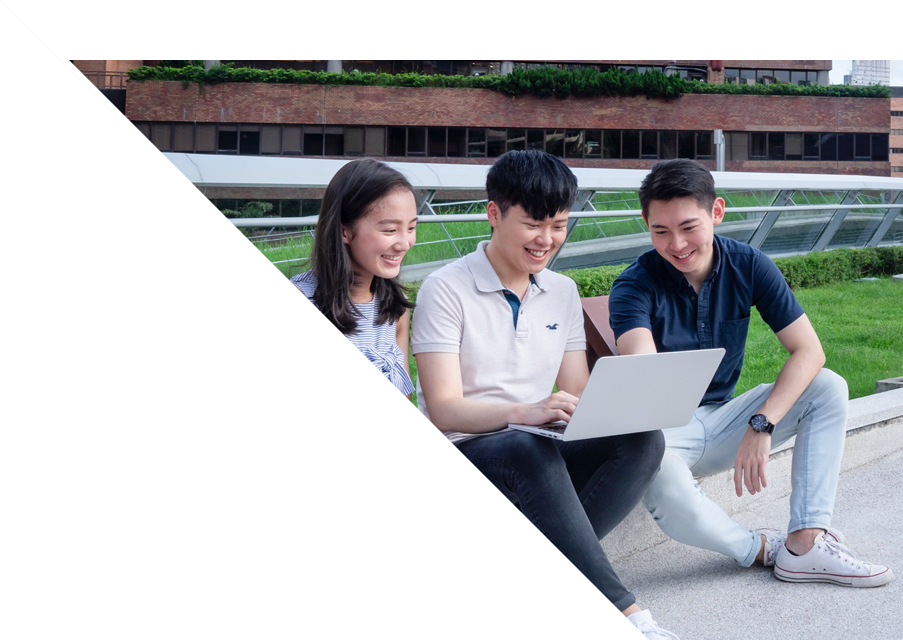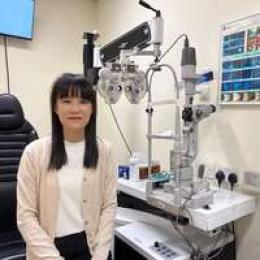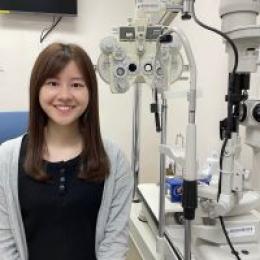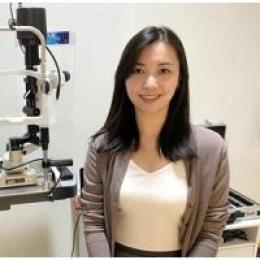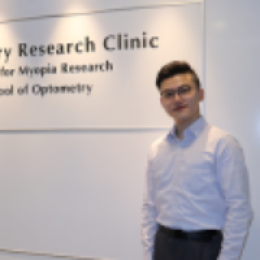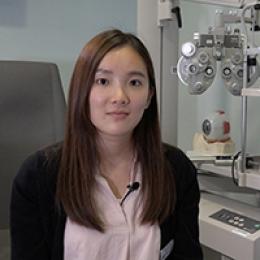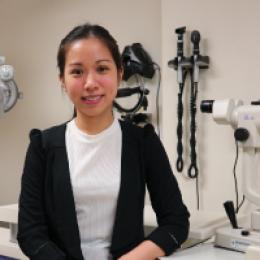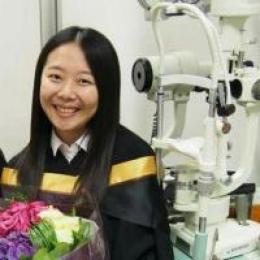
Sept 2024 Entry
5 years (Optometry);
4 years (Vision Science and Secondary Major) #
160, including 20 clinical/field credits (Optometry);
133, without clinical/field credits (Vision Science and Secondary Major) #
Prof. Andrew Lam
PhD, MPhil, PDip(Optom), FAAO
Students will receive one of the following awards upon successful completion of the graduation requirements:
BSc (Hons) in Optometry
BSc (Hons) in Vision Science. This award is only available with one of the Secondary Majors #.
The credit requirements for this scheme are indicative only and subject to review.
Students may enrol in any awards without being subject to further assessment.
Students should also consider the remarks in the table below:
| Optometry | Vision Science and Secondary Major # |
|
|
| - |
|
# For details, please see Secondary Major Details.
What's New
| Optometry | Vision Science and Secondary Major # |
|
Programme Aims & Learning Outcomes The programme aims to prepare students to become primary eyecare practitioners with expert knowledge of the eye and the visual system. Students gain the knowledge and skills necessary to diagnose visual problems and offer treatment options ranging from optical lenses to visual training.
The journey to becoming an eye care practitioner begins with establishing a strong foundation in the basic life sciences, followed by a thorough grounding in the optometric sciences. In the second half of the programme, students acquire the necessary clinical skills to effectively manage a wide variety of visual problems. The five semesters of supervised clinical training with real patients in our Optometry Clinic and Satellite Clinics give our students many opportunities to learn to care for patients and consolidate their clinical skills and knowledge.
Throughout the programme, students learn about ethical, professional and legal issues in preparation for their clinical practice.
Programme Characteristics Students participate in clinical training in preparation for becoming optometrists. The training involves real patients over two phases conducted in the Clinical Laboratory and Optometry Clinic.
Our unique Optometry Clinic in Hong Kong provides an excellent environment for clinical training. |
Programme Aims & Learning Outcomes The programme aims to equip students with knowledge of key principles of optometry and vision science, which will enable them to work in the ophthalmic industry and health-care settings. Students are trained to provide comprehensive and high-quality support for research activities to contribute to the development of vision science research in Hong Kong and worldwide.
Programme Characteristics The BSc (Hons) in Vision Science + Secondary Major is a four-year programme.
Students do not receive clinical training. Instead, they acquire cross-disciplinary knowledge in AIDA or IE through one of the Secondary Majors. |
# For details, please see Secondary Major Details.
| Optometry | Vision Science and Secondary Major # |
|
Professional Recognition Graduates are eligible for full registration as Part I optometrists in the licence register of the Optometrists Board of Hong Kong. They can also practise optometry in Malaysia, Singapore and Taiwan upon fulfilling local licensure requirements. Graduates are also eligible to sit the Competency in Optometry Examination (COE) and Assessment of Competence in Ocular Therapeutics (ACOT) hosted by the Optometry Council of Australia and New Zealand. |
Professional Recognition Graduates of the BSc (Hons) in Vision Science are NOT eligible for registration in any part of the licence register of the Optometrists Board of Hong Kong. |
|
Career Prospects Optometrists are the main providers of vision care in the community. Most of our graduates initially enter optometric practice as employees, and many subsequently establish their own practices. Some graduates find work in government agencies, such as the Hong Kong Hospital Authority and Department of Health.
Apart from optometric practice, there are various opportunities in the optical industry, particularly professional services. Some graduates pursue postgraduate research locally and internationally. |
Career Prospects Graduates can work in the ophthalmic industry and health-care settings. Graduates are prepared to provide support for research activities.
Graduates can pursue postgraduate research studies locally and overseas and become vision scientists. |
# For details, please see "Secondary Major Details" section.
| Optometry | Vision Science and Secondary Major # |
|
|
# For details, please see Secondary Major Details.
Information on the subjects offered can be obtained at www.polyu.edu.hk/so.
The options of a Secondary Major in AI and Data Analytics or Innovation and Entrepreneurship are only available to students on the BSc (Hons) in Vision Science.
Aims of the Secondary Majors:
| AI and Data Analytics (AIDA) | Innovation and Entrepreneurship (IE) |
| Artificial intelligence and data analytics (AIDA) are the most widely used technologies in various disciplines and have become a de facto approach to enriching business, advancing technologies and achieving breakthroughs in virtually all fields. Therefore, it is essential for students to possess expertise in AIDA and other underpinning technologies. | Innovation and Entrepreneurship (IE) uses a cross-disciplinary approach to instil the spirit and mindset of IE in students from different disciplines, such as the commercialisation of technologies specifically or problem-solving in general. Through this cross-disciplinary design, students are equipped with knowledge and techniques critical to analysing, planning and implementing financially viable and technically feasible IE. Students are provided with direct experience in innovative and entrepreneurial activities. |
Intended learning outcomes of the Secondary Majors:
| AI and Data Analytics (AIDA) | Innovation and Entrepreneurship (IE) |
|
On completion of AIDA, students are expected to be able to:
|
Upon completion of IE, students are expected to be able to:
|
Satisfy the University's General Entrance Requirements.
Please click here for the subject weightings for 2024/25.
There is no compulsory subject requirement. Preferred subject(s) with the highest weighting for admission score calculation include(s):
Relevant Applied Learning subject(s) that can be considered for meeting the University entrance requirement and admission score calculation is/are:
2023/24 Average Score: Any Best 6 Subjects (with Subject Weighting) = 312.1
For further programme information, please contact
the General Office (tel.: 2766 4835; email: so.enquiry@polyu.edu.hk).
Required
Applicants are required to submit an essay of no more than 500 words on their reason for choosing the study for BSc (Hons) Scheme in Optometry. Download
To evaluate the potential for and interest of applicants in the programme.
15 minutes
Suitable applicants may be invited to interviews.
Required
Applicants are required to submit an essay of no more than 500 words on their reason for choosing the BSc (Hons) Scheme in Optometry. Download
Recommendation letters are required
